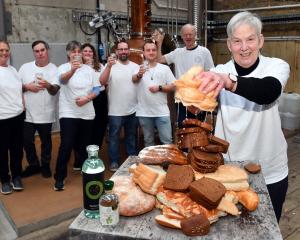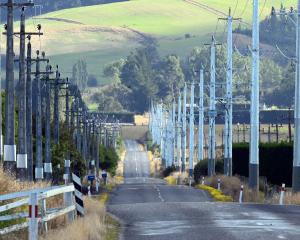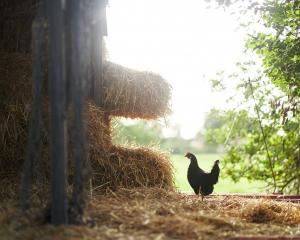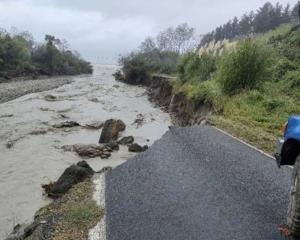I find Otautahi Christchurch’s new motorways confusing. Have you ever overshot the off-ramp on an unfamiliar motorway? It takes some time to reorient yourself and work through tortuous streets to return to the right path. Getting lost in unfamiliar backwaters can be frustrating and contain a certain anxiety.
To overshoot an off-ramp is an inconvenience. To overshoot a natural ecosystem, however, is to invite collapse.
Humanity’s ecological footprint now exceeds what the planet can regenerate. We are in overshoot, drawing down natural capital faster than it can regrow and sustain us and this predicament is existential.
Our political leaders are attempting to address this crisis through Cop26 in Glasgow, while in Aotearoa New Zealand we’re being asked to contribute ideas on the Emission Reduction Plan. Time to return to the right path is running out, but let’s not give in to despair.
We are learning to be more collaborative and adaptable. Recently, I attended a three-day Strengthening Communities "zui" (hui by Zoom). Being stuck in front of a screen for three days was exhausting, but also inspiring to be connected with so many good people working on the climate and community challenges from all around Aotearoa New Zealand.
Phil Squires unveiled Poneke Power, a new Wellington electricity retailer focused on climate equity to ensure low-income households are not left behind in the carbon transition.
Tina Ngata, Ngati Porou and advocate for environmental, indigenous and human rights talked about relationships for climate justice.
Hapu, iwi and community organisations are increasingly working together, understanding that the diversity of projects are all linked by common values of living lightly and caring for people and Papatuanuku. What all share is an understanding that co-operation is key to building an economy of enough.
The strategy is the result of two years’ collaboration between Te Urunga o Kea: Te Arawa Climate Change Working Group, Te Arawa Lakes Trust and Scion, and provides a roadmap for flax-roots action. It also illustrates a growing engagement of Crown Research Institutes, such as Scion, with passionate, energetic and results-focused community organisations and Maori trusts.
Yet despite all the talk of the "team of five million", community is no benign, homogenous thing. Instead, it is a dynamic, contested space.
Government can and should provide enabling policy for community leaders and social entrepreneurs to work with the government for effective partnership and understanding.
Recommendation 10 from the Climate Change Commission’s report Inaia tonu nei: a low-emissions future for Aotearoa is to "[e]nsure inclusive and effective consultation, engagement and public participation", while recommendation 13 is "[e]nable system-level change through innovation, finance and behaviour change".
Neither the Government nor the Climate Change Commission seems to understand the community sector is actually full of innovation, dynamism and ambition for partnership.
The Compost Collective in Tamaki Makaurau, for example, a partnership to reduce household waste involving Auckland Council, EcoMatters Environment Trust and Kaipatiki Project, came about because community organisations had already begun the mahi and the council provided the resource. Now 420 tonnes of food waste is diverted from landfill in a single year and conversations about simple ways of doing things are entering many households.
Communities are active.
We are in overshoot and the return path to enable future generations to thrive will be rocky. But let’s draw on what we have. It’s time for the Government to ramp up support for the change-makers in the community sector and unleash the creative energy. This should involve:
1. Resourcing place-based community groups/Maori trusts and communities of interest such as Community Energy Network, Zero Waste Network, and Enviro Hubs Network;
2. Engaging flax-roots expertise in reference groups, or as advisers;
3. Listening carefully and learning from community experience through enabling citizen’s assemblies and staff secondments.
The cascading climate impacts on our journey to power down will test our ability to plan dynamically, our risk management, our transport and utilities, finance and insurance, as well as our ability to govern. What better ally for a government than a community sector already engaged in the mahi?
Scott Willis is a climate and energy consultant. Each week in this column writers address issues of sustainability.
Comments
There is a direct correlation between cheap energy, health, wealth and caring for the environment.
Countries that have made cheap energy available to the population have communities that have enhanced mobility, better food supplies, better housing, suffer less from inclement weather, better education, are more diverse and accepting of other cultures, more liberal in outlook, have lower birth rates, more opportunities for women, less child labour, cleaner air & water, more parks and public gardens, better animal welfare, to name but a few, while also protecting and caring more for the environment.
"...our journey to power down" can not achieve these modern feats.
Then there is the question of who is included.
Are we talking all of humanity or just certain countries, certain communities or identity groups deemed as 'privileged'?
Why is it that those deemed to be the victims of climate change are exempt from emission reduction targets?
The limited supply of fossil fuels has always been a given so they will need to be replaced.
The big question is, with what and what will the cost be?
The best solution is a source where it's 'too cheap to metre'. 4th Gen nuclear!
It is a long time since I have read an article so full of poor English and jibberish. It certainly would not achieve the Crystal Mark for plain English.
I was wondering of the writer could benefit from a course in plain english when I read your comment.
I don't think many would disagree with the base idea of the article, it is just hard to work out what the base idea is from the language used. I dare say the 3 days in front of the screen involved more than a few nod off periods if all the speakers were talking like this.











